A nostalgic look at the colorful phrases that defined a groovy generation.

The 1960s wasn’t just a period of civil rights marches, psychedelic posters, and bell-bottoms—it was a cultural revolution that reshaped how people thought, dressed, and yes, how they spoke. Language during this era wasn’t just a way to communicate. It became a badge of identity, a marker of belonging in a generation that wanted to break free from the rules of the past. And with all that came an avalanche of new expressions—fun, cheeky, defiant phrases that encapsulated the attitude of the times.
Many of these groovy sayings were picked up from jazz, beat poetry, or the blossoming world of rock music and were passed around in smoky basements, coffeehouses, and protest rallies. Let’s rediscover 12 of these vibrant, long-forgotten gems.
1. “Made in the Shade” meant success was assured.
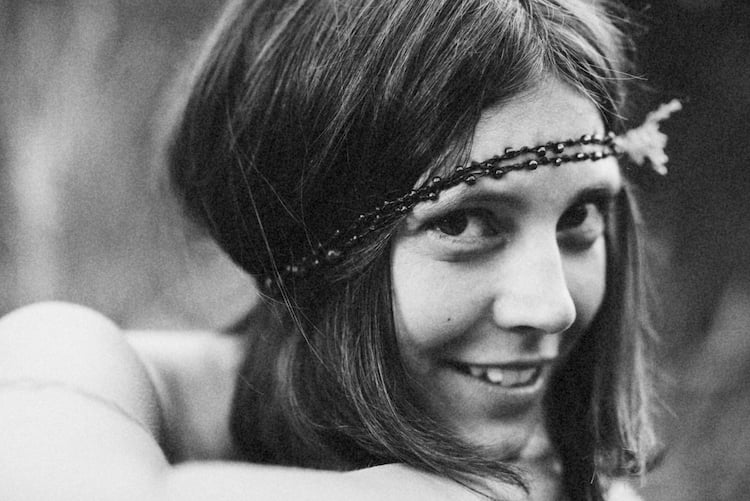
If you heard someone say they were “made in the shade,” you could assume they were sitting pretty with no worries in sight. This phrase implied that life was rolling smoothly and all the pieces had fallen perfectly into place. It wasn’t just about success—it was about effortlessness, a sense that everything good had already been secured. Teens and young adults used it to describe relationships, gigs, or plans that were locked down and guaranteed to pan out. It conveyed an enviable level of confidence that mirrored the carefree energy of the time.
The origin of the phrase is likely tied to the literal comfort of being in the shade on a hot day, suggesting ease and relaxation. Its appeal lay in the way it blended optimism with cool composure. Though it’s rarely heard today, its meaning still resonates with anyone who finds themselves in a perfect situation without the stress. The phrase captures the laid-back assurance that came to define much of the ‘60s youth culture, as reported at Merriam-Webster.
2. “Fuzz” was slang for the police.

“Fuzz” wasn’t just a clever code word—it became a symbol of the generational divide and a subtle act of linguistic resistance. In a decade fueled by civil disobedience and anti-establishment sentiment, calling the police “the fuzz” allowed young people to talk about authority without sounding too serious or fearful. The word had a dismissive edge to it, perfect for a group of people who saw the police not as protectors, but as enforcers of a system they distrusted. The term spread like wildfire in underground newspapers, song lyrics, and edgy television shows of the era.
Though the exact roots of “fuzz” are still debated, many believe it comes from the perception of the police having fuzzy hats or fuzzy details in reports. Regardless of its origin, it captured the sneaky irreverence that defined much of the 1960s’ youth lingo. It wasn’t aggressive—it was sly and cool. Today, the term has all but faded from everyday use, lingering mainly in period dramas and pop culture throwbacks. But for those who lived through it, “the fuzz” still evokes a vivid picture of rebellion and protest, as stated at Dictionary.com.
3. “Split” meant leaving in a hurry.
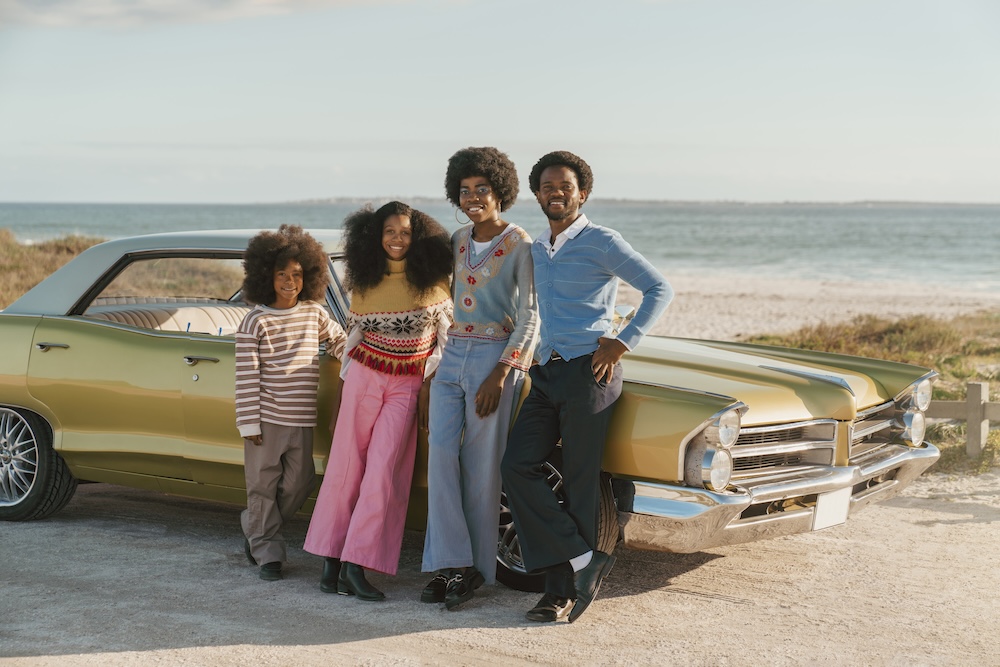
The phrase “Let’s split” was an all-purpose exit line, used to make a quick getaway or just move on to the next cool thing. Whether you were ducking out of a boring conversation or racing off to catch a band downtown, saying you needed to “split” felt spontaneous and free-spirited. It was a way of declaring movement, of never staying too long in one place—just like the era itself. It perfectly reflected the 1960s’ obsession with freedom, mobility, and not being tied down to anyone’s expectations.
Unlike more modern exit terms like “bounce” or “dip,” “split” carried an edge of style and decisiveness. It wasn’t about escape—it was about liberation. It was often used in films and pop songs and became part of a casual but urgent vocabulary. Today, the word has almost vanished from common usage, but it still surfaces in nostalgic references to the era. Those three little syllables managed to capture a whole ethos of movement, urgency, and youthful determination, as mentioned in Collins English Dictionary.
4. “Right On” offered enthusiastic agreement or encouragement.

“Right on!” wasn’t just a feel-good response—it was a cultural exclamation that often meant solidarity. When someone uttered those two words, they weren’t just agreeing—they were affirming values, standing beside you in spirit. It became especially prominent during social justice movements, where it served as a quick way to say, “I hear you, I support you.” It held weight but came with a cool, affirmative tone that made it instantly likable and contagious.
Whether shouted at a protest or casually tossed into a conversation among friends, “right on” brought a burst of positivity to the moment. It made the speaker feel seen, understood, and empowered. Even though it’s rarely heard in contemporary settings, it still packs an emotional punch when revisited in films or quoted by those who experienced the era firsthand. It remains one of the most affirming pieces of vintage slang ever to echo through American history.
5. “Dig It” was all about understanding and appreciating.
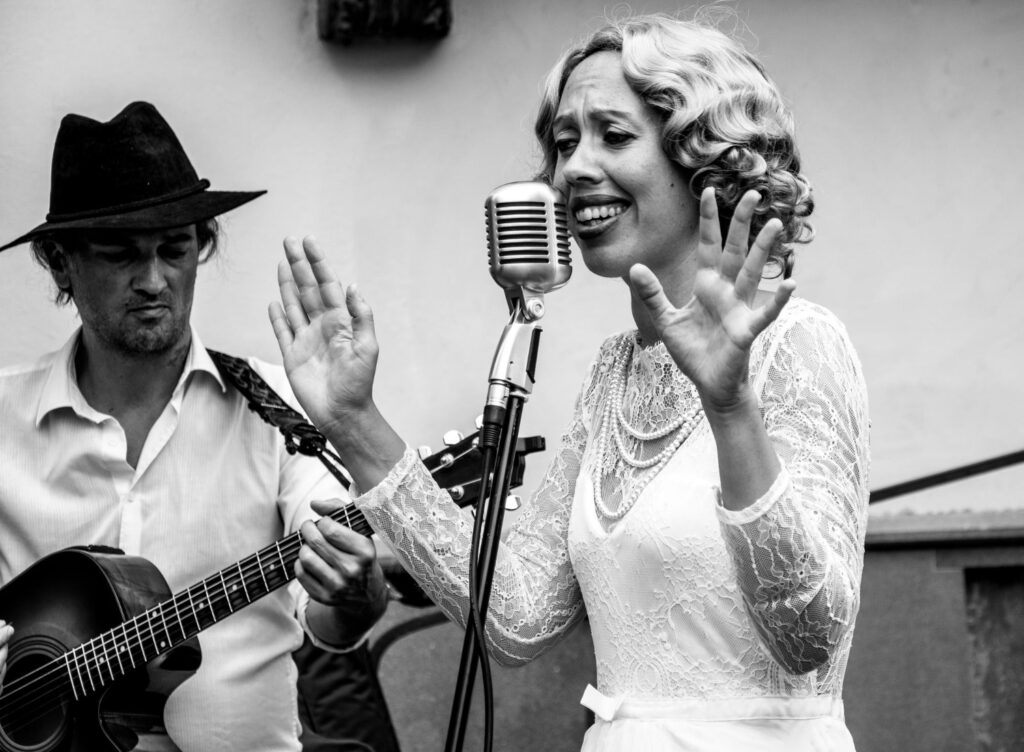
To “dig” something meant you were on its wavelength. Whether it was a tune, a point of view, or a person’s vibe, if you “dug it,” you weren’t just understanding—it resonated with you deeply. It carried a tone of mindfulness and full-bodied approval. Musicians, poets, and activists alike used it as a stamp of authenticity and depth. Saying “I dig it” was cooler than just liking something—it meant you connected to it on a soulful level.
The phrase originally grew out of the jazz world but became a fixture in beat and hippie circles during the ‘60s. You might hear it in the smoky corner of a club after a saxophone solo, or at a beach party under the stars. It conveyed a mix of chill, presence, and approval that was unique to the time. Though the term has faded from modern conversation, it still shows up now and then when people want to channel that old-school vibe of deep appreciation.
6. “Bread” referred to money in the grooviest way.

The word “bread” was essential vocabulary in a time when money was both necessary and suspicious. Hippies and working musicians didn’t like to dwell on wealth, but they still needed “bread” to keep things going. It was the perfect metaphor—money as sustenance, just like the daily bread you’d eat. It was easy, casual, and rolled off the tongue in conversation, especially when you were short on it or just landed some.
The phrase had staying power throughout the ‘60s and ‘70s, partly because it didn’t sound greedy or capitalistic. It stripped down financial talk to something basic and relatable. And when someone asked you if you had “any bread,” they weren’t talking about toast. While more modern slang terms like “cash” or “bucks” took over, “bread” still holds a quaint and groovy charm that feels uniquely tied to flower power and folk guitars.
7. “What a Gas” meant something was a blast.

Describing something as “a gas” was a joyful way to say it brought you pleasure or laughter. It didn’t need to make much sense logically—it was all about the vibe. From spontaneous dancing to a great conversation, calling something “a gas” instantly turned it into a cherished memory. The phrase was more than a compliment—it was a badge of fun, a way to relive a good time in just three words.
Its roots may go back to jazz culture, but “a gas” reached full popularity in the freewheeling days of the ‘60s. The term had a playful, almost zany ring to it, which made it perfect for a generation that wasn’t afraid to be silly while being bold. While it sounds odd to modern ears, hearing it in old movies or from boomers today still brings a smile and a strong hit of nostalgia.
8. “Outta Sight” was high praise for something impressive.
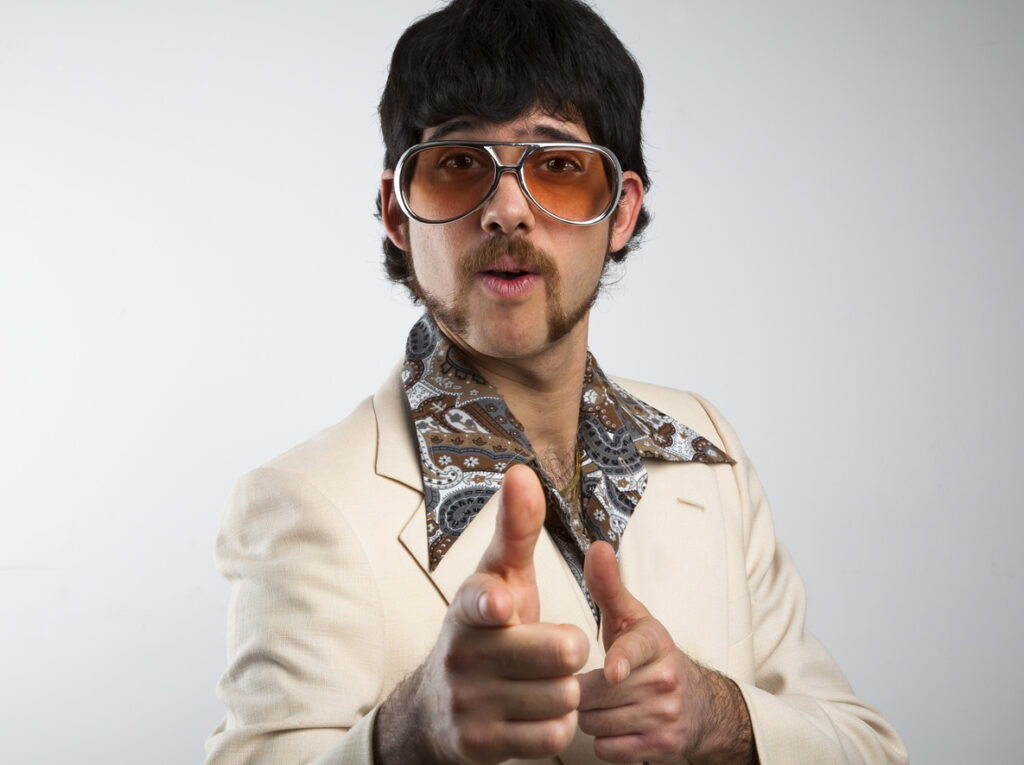
When something blew your mind, you didn’t just say it was cool—you said it was “outta sight.” This was high praise, suggesting that the experience or object was so amazing, it went beyond the limits of normal perception. Whether describing an epic guitar solo, a killer outfit, or a peaceful mountaintop view, “outta sight” said it all with flair.
There was something stylishly exaggerated about the phrase that captured the era’s taste for the dramatic and expressive. Even today, if someone uses it, you know they’re not just impressed—they’re overwhelmed in the best way. It was a badge of honor to have your music, art, or even your attitude described as “outta sight.” Though the phrase has mostly slipped into history, it remains a beautiful example of the ‘60s love for color and expression in everyday speech.
9. “Far Out” captured a sense of wonder and amazement.

“Far out” wasn’t just for astronauts. In the 1960s, it became shorthand for anything that was unusual, mind-blowing, or awe-inspiring. It tapped into the growing fascination with space exploration, psychedelic experiences, and boundary-pushing creativity. When someone said “far out,” they were embracing something wonderfully unexpected and fresh.
The phrase lent itself perfectly to a generation that wanted to expand consciousness and explore the fringes of the known world. Whether referring to abstract art or a new political idea, “far out” was flexible enough to cover it all. It was wide-eyed and imaginative, often delivered with genuine enthusiasm or playful irony. While it may sound dated now, it’s one of those phrases that instantly conjures the vibe of lava lamps, incense, and vinyl records spinning in the background.
10. “Sock It To Me” meant bring it on!
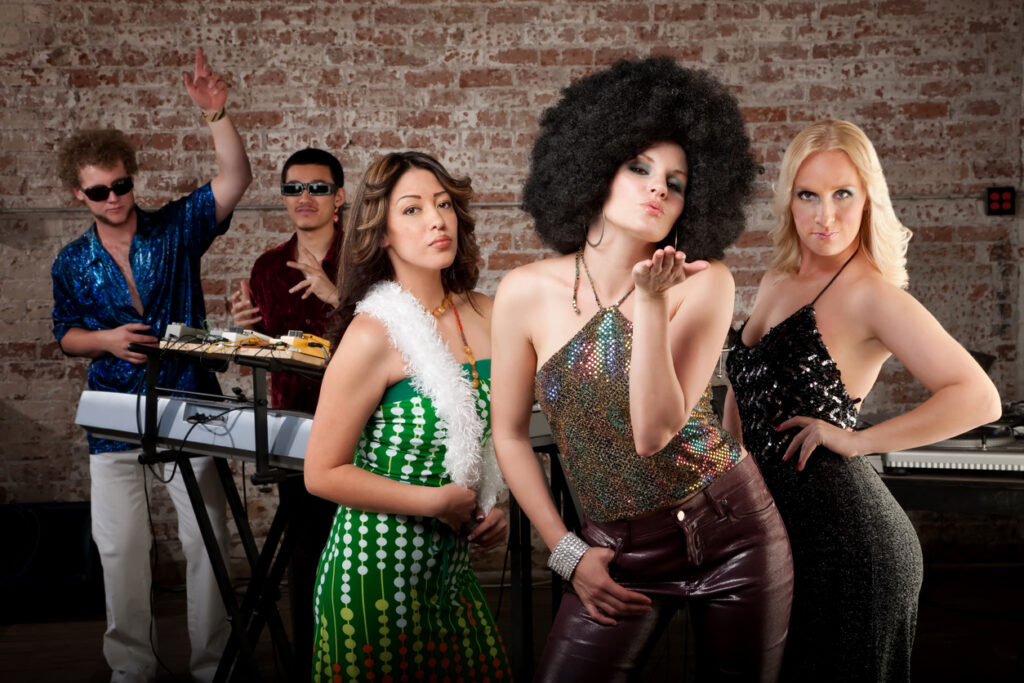
“Sock it to me” began as a call to action—an enthusiastic way of saying “Give me your best shot!” It exploded into mainstream pop culture thanks to the comedy show Rowan & Martin’s Laugh-In, where it became a recurring gag line. Its delivery was often fast and punchy, matching the playful aggression and joy of the era’s humor and music.
Aretha Franklin famously used it in her song “Respect,” adding a fierce, sassy tone to the plea. The phrase balanced between flirtation, empowerment, and comic relief, depending on the context. It reflected a cultural moment where boldness and challenge were celebrated. Though rarely said aloud today, it still shows up in nostalgic callbacks to a time when language was bold, rhythmic, and packed with personality.
11. “Groovy” described everything that was cool.
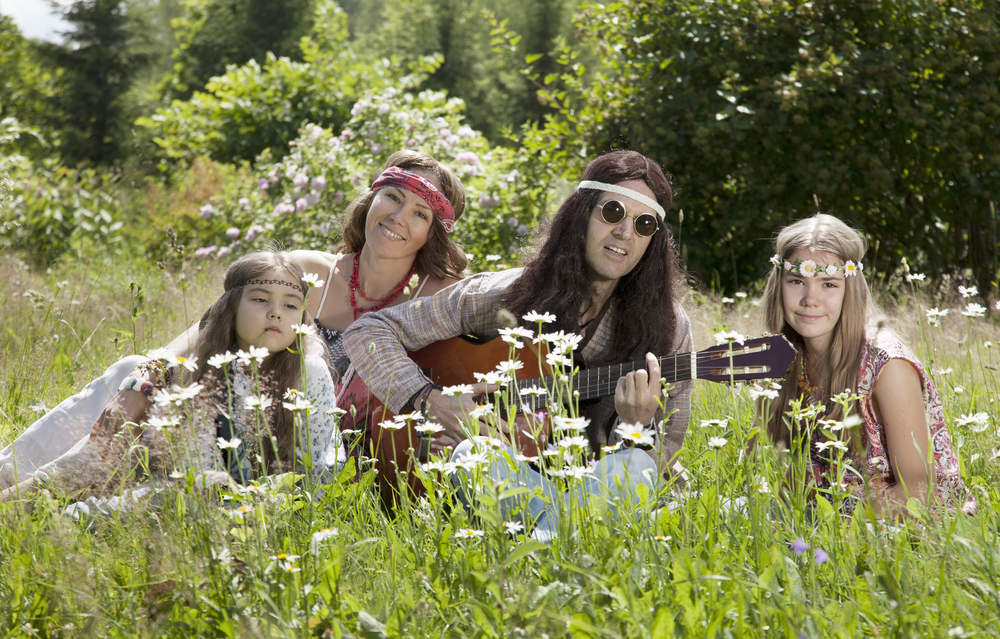
No single word encapsulates the 1960s quite like “groovy.” It was the ultimate stamp of approval, slapped onto anything deemed cool, enjoyable, or stylish. If something was groovy, it wasn’t just okay—it was rhythmically aligned with the good vibes of the moment. It carried musical roots and flowed naturally into a world built around feeling and expression.
“Groovy” became so tied to the image of flower children and peace signs that it eventually became caricatured. But in its prime, it was a fun and sincere way of celebrating life’s pleasures. Saying a concert, a dress, or even an idea was “groovy” made everything sound effortlessly chill and profoundly enjoyable. Even though it has fallen out of serious use, it still has a place in our collective memory as the ultimate ’60s compliment.
12. “Don’t Bogart That Joint, Man” was a plea for sharing.

Taken from the counterculture’s embrace of communal living and fairness, this quirky phrase urged people not to be selfish—especially with their weed. It originated from actor Humphrey Bogart’s habit of holding a cigarette too long without passing it, and it soon became code among stoners for “pass it along, man.” It captured both the humor and ethos of a generation trying to build community and generosity.
Immortalized in the song “Don’t Bogart Me” by Fraternity of Man, the phrase became part of the social fabric at concerts, communes, and college campuses. While modern cannabis culture has its own language now, this saying still carries legendary status among those who lived through or admire the free-loving spirit of the 1960s. It’s a line that encapsulates camaraderie, music, and a slightly mischievous sense of humor all in one.
